US to urge Israel to take ‘concrete steps’ to reduce civilian deaths
The Israeli military has declared it is now at ‘the height of war’ having effectively surrounded Gaza City, as the US called for ‘concrete steps’ to reduce civilian deaths.
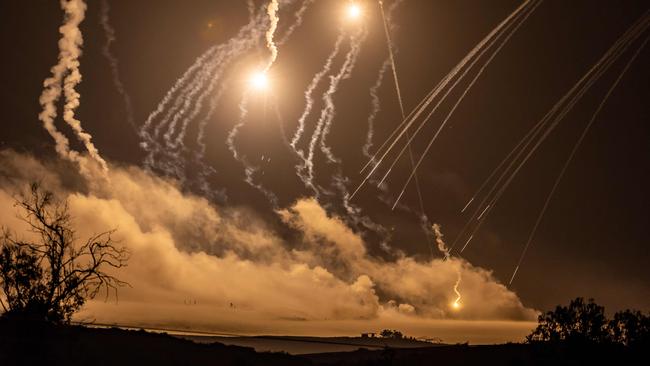
The Israeli military has declared it is now at “the height of war” having effectively surrounded Gaza City to advance on Hamas militant strongholds, as the US called for “concrete steps” to reduce civilian deaths.
But fears of an escalation in hostilities on Israel’s northern border were heightened following revelations that Russian paramilitary organisation Wagner Group plans to provide an air-defence system to the Iran-backed Hezbollah fighters in Lebanon who have unleashed a barrage of missiles at Israeli targets.
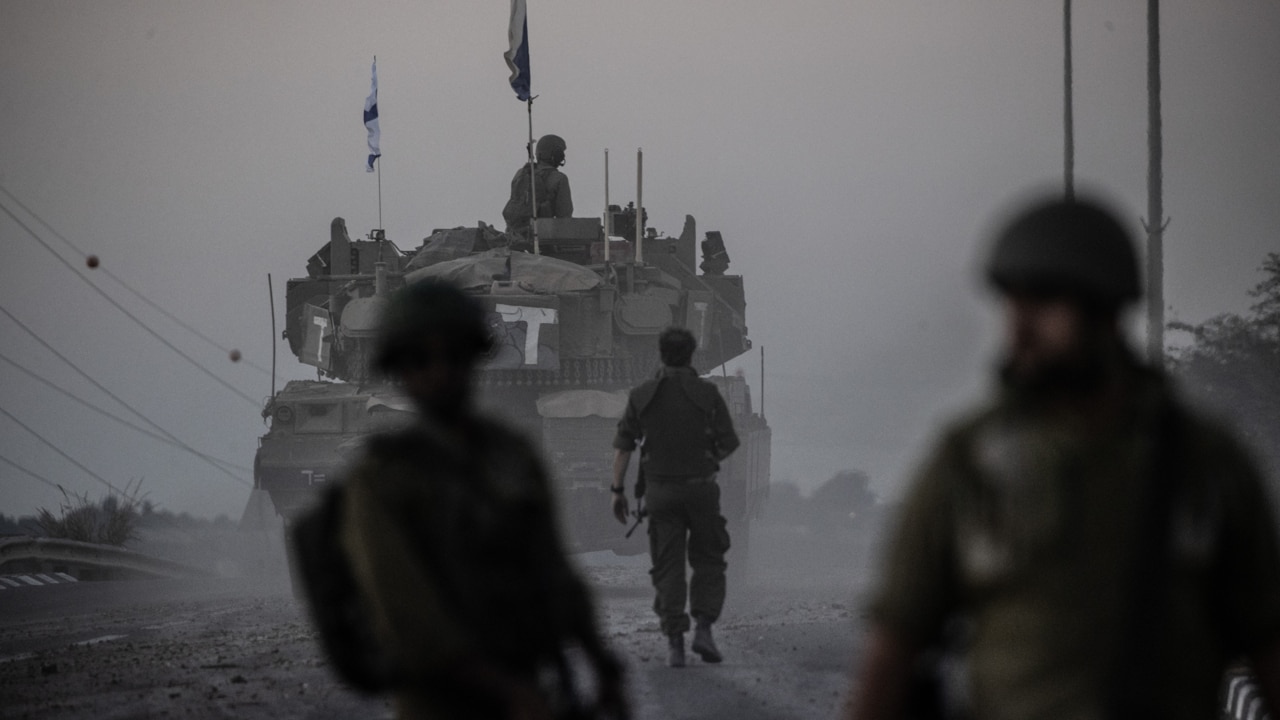
US officials, citing intelligence, said they were monitoring discussions involving Wagner and Hezbollah, with the potential delivery of the Russian SA-22 system, which uses anti-aircraft missiles and air-defence guns to intercept aircraft, was a major concern.
Hezbollah leader Hasan Nasrallah was due to give a speech overnight in which he was expected to strongly criticise Israel, but also give some indication as to whether Hezbollah was contemplating a larger conflict.
Amid the most fierce and deadly street-to-street fighting since the week-long ground offensive began, Israel claimed its troops were slowly winning the struggle.
“We are at the height of war,” said General Herzi Halevi, Israel’s chief of staff.
“Our forces are engaged in face-to-face combat against a cruel enemy, but the advantage is clear.”
Military spokesman Rear Admiral Daniel Hagari said: “Armour forces and infantry, backed by many aircraft, are attacking outposts, command centres, launching positions, and additional terrorist infrastructure used by Hamas. The soldiers are eliminating terrorists in face-to-face battles.”
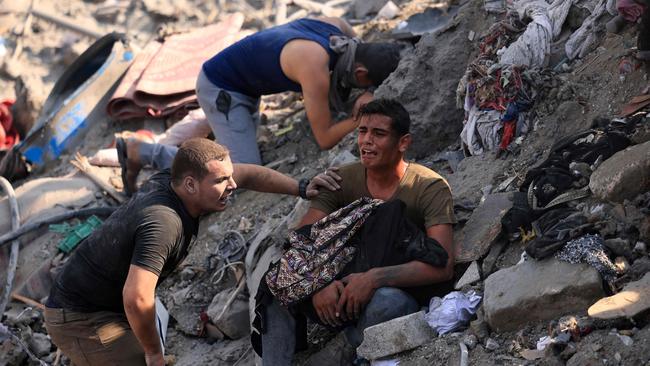
Israel has effectively cut the Gaza Strip in two, isolating Gaza City, leaving no route for escape for Hamas militants fighting there. The bitter fighting came amid growing international pressure on Israel to agree to a humanitarian pause to allow more aid into Gaza and also for it to do more to reduce civilian casualties.
US Secretary of State Antony Blinken arrived in Israel, where he said he would seek agreement on reducing civilian deaths in Gaza, which the Hamas-controlled Gazan health ministry says have now exceeded 9000.
“We will be talking about concrete steps that can and should be taken to minimise harm to men, women and children in Gaza,” Mr Blinken said.
Growing international concern about the death toll and Israel’s conduct of the war was fuelled this week by two airstrikes on the Jabalia refugee camp in Gaza. The strikes killed at least 100 people, but Israel said they were necessary because they were aimed at killing a senior Hamas commander who operated from a network of tunnels under the camp.
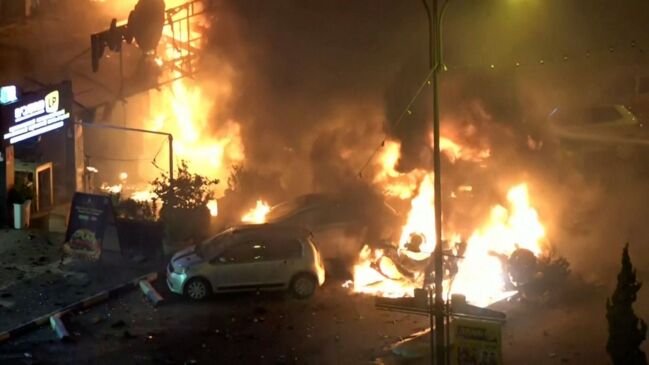
UNICEF, the UN agency for children, called the scenes at Jabalia “horrific and appalling”, saying about 400 children had died each day of the conflict and “this cannot become the new normal”.
The diplomatic fallout from the airstrikes continued, with Bahraini officials confirming that the Middle East nation had withdrawn its ambassador from Israel and that flights between the two countries were suspended.
Bahrain is a member of the Abraham Accords, which normalised relations between Bahrain and Israel in 2020. Jordan and several South American nations also withdrew their ambassadors in protest at the Jabalia bombings.
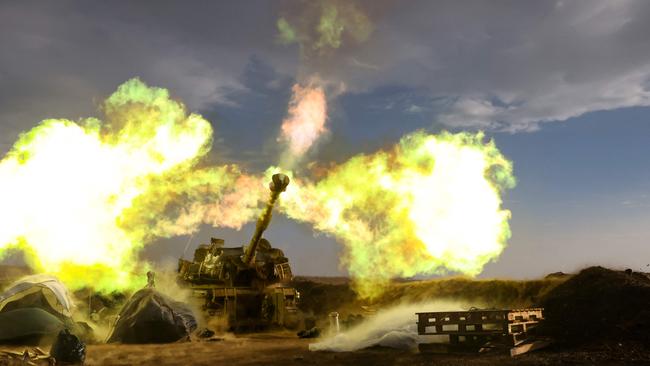
Mr Blinken will urge Israeli Prime Minister Benjamin Netanyahu to consider a pause in the conflict to allow more aid to enter Gaza and more time to secure the release of about 240 Israeli hostages held by Hamas. Joe Biden said for the first time this week that there should be a pause in hostilities. Mr Netanyahu has previously opposed a humanitarian pause or a temporary ceasefire, saying it would allow Hamas to reset its forces and would therefore give an advantage to the terror group.
“We are already beyond the outskirts of Gaza City. We are making progress. Nothing will stop us,” Mr Netanyahu said.
Admiral Hagari said: “At this moment, the idea of a ceasefire is not on the table at all.”
Australia has also called for a humanitarian pause to allow more aid to enter Gaza. But Australia’s former ambassador to Israel Dave Sharma said a pause was a bad idea because it would disadvantage Israeli forces.
“If we support a pause in hostilities, the realistic outcome of that is that we give Hamas a whole lot of time to regroup, move their assets, re-establish civilian shields,” Mr Sharma said.
“It’s not going to ease the human suffering, it’s going to prolong this conflict because it’s going to make Israel’s job harder to do operationally.”
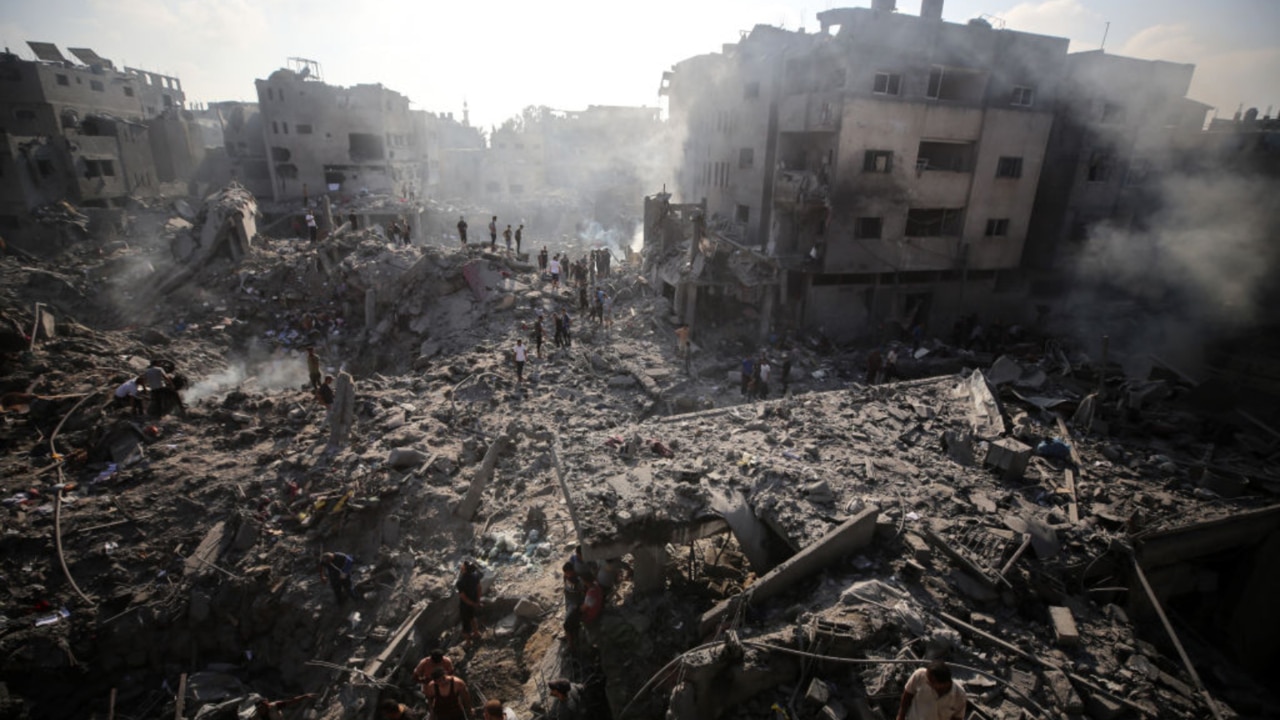
On Israel’s northern border, Iran-backed Hezbollah fighters continued to launch missiles at Israeli targets, a campaign that has escalated this week, but which has stopped short of a declaration of war against Israel.
Israel and its allies have been concerned that Hezbollah would exploit the conflict with Hamas in Gaza to launch an attack on Israel, forcing it to fight on two fronts.
Israel has also been the target of missiles fired by Iran-backed proxy militia in the region. Houthi rebels in Yemen this week fired missiles at Israel and threatened to fire more, but have not declared war on Israel.
The US is rushing more troops and air defence systems to the Middle East to defend its own troops, who have come under fire from Iran-backed militia in Iraq and Syria.


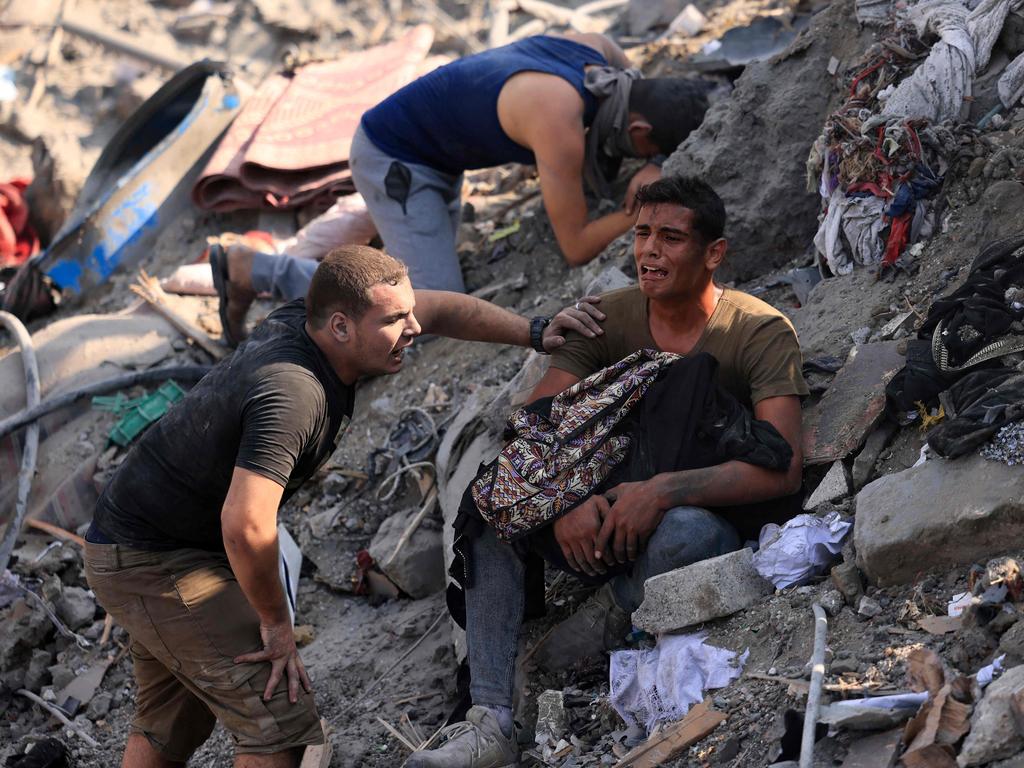
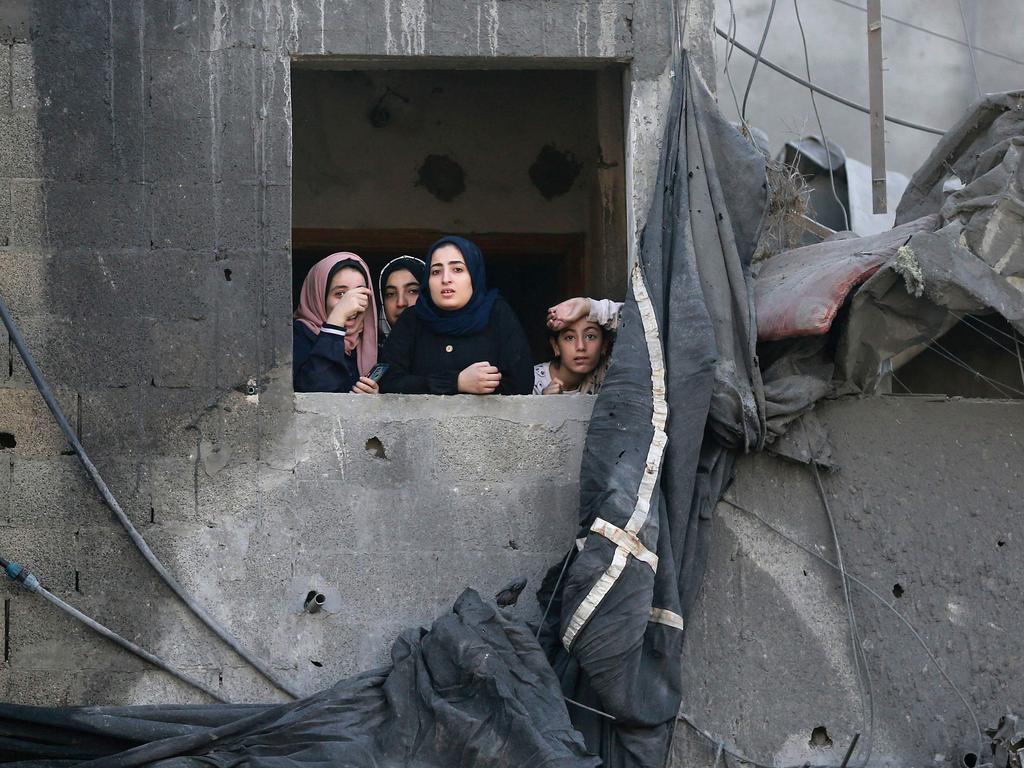
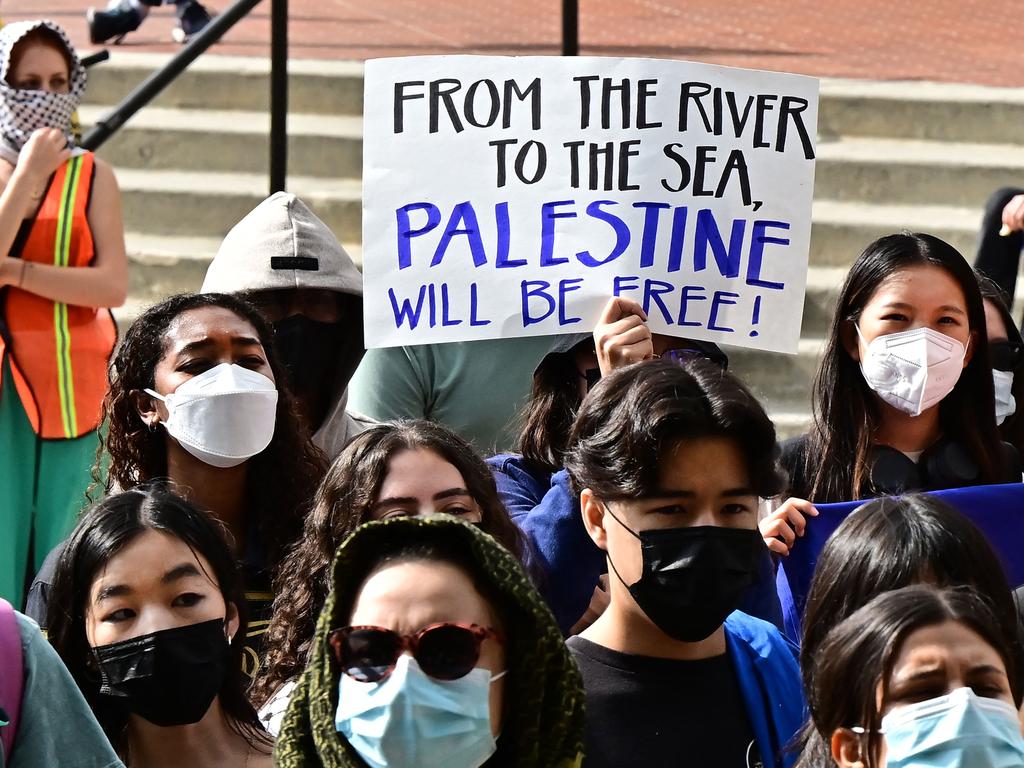
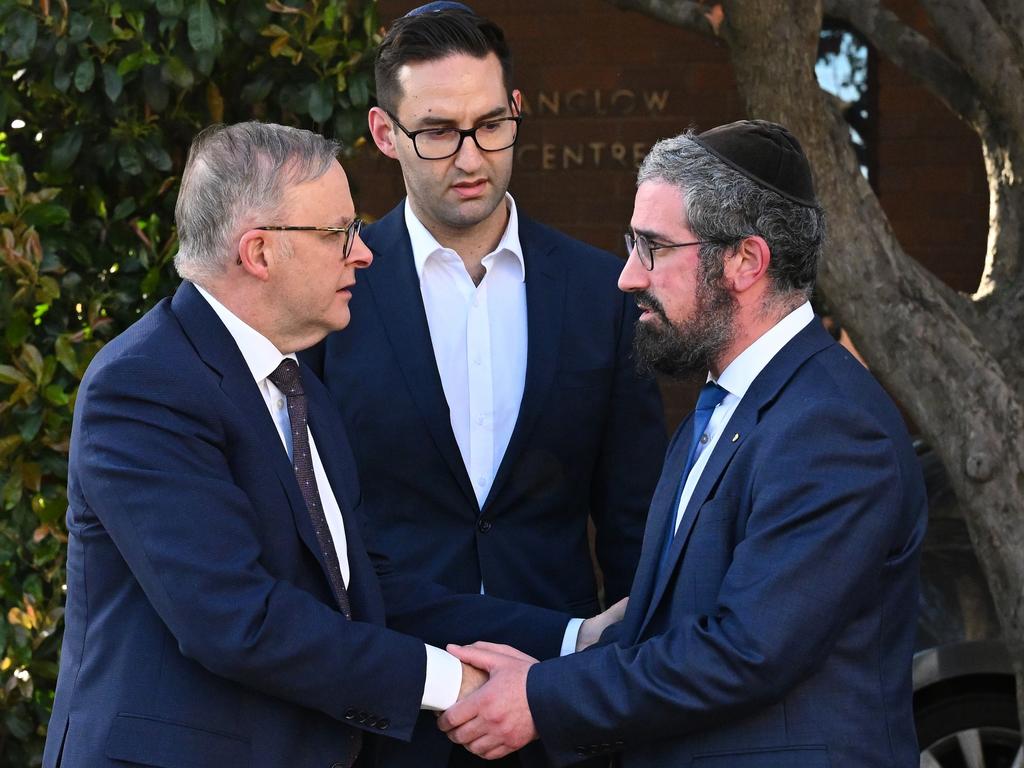


To join the conversation, please log in. Don't have an account? Register
Join the conversation, you are commenting as Logout